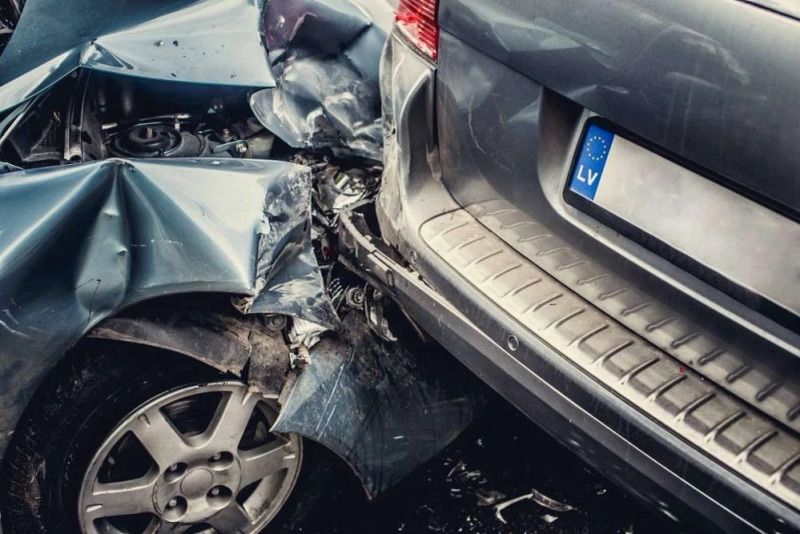Accidents happen, and when they do, the aftermath can be frustrating. Not only do you have to deal with injuries and vehicle damage, but you may also face financial losses, including repair costs. Fortunately, if the accident was caused by someone else's negligence, you have the right to seek compensation for the damages you have suffered. This includes not only medical bills and lost income but also the diminished value of your vehicle, which is often overlooked by insurance policies.
Understanding Diminished Value Claims
When your car is involved in an accident, even if it is repaired, its value may decrease, a situation known as diminished value. Potential buyers, including private individuals and car dealers, are often hesitant to pay the same amount for a vehicle that has been in a collision, recognizing the loss of value. Diminished value claims are designed to recover the difference between the pre-accident value of your vehicle and its diminished value after the accident.
There are three types of diminished value claims that may apply to your case:
Immediate Diminished Value: This refers to the difference in the resale value of your vehicle without any repairs being made.Inherent Diminished Value: The loss of market value or worth of the vehicle due to its history of damage and repairs.Repair-Related Diminished Value: The decrease in value caused by faulty or inadequate repairs, such as the use of used parts or leaving certain items unrepaired.In Texas, the at-fault driver is legally and financially responsible for the damages caused in a car accident, including any diminished value. To ensure drivers fulfill this responsibility, the state requires them to have a minimum amount of liability car insurance.
Filing a Diminished Value Insurance Claim
Depending on the circumstances of your case, you may need to file either a first-party insurance claim or a third-party insurance claim, both of which address different aspects of the incident and the coverage provided.
First-Party Insurance ClaimsIf you were at fault for the accident, you would file a first-party insurance claim with your own insurance coverage. This claim seeks compensation for the diminished value of your vehicle, which is a loss you incur even after repairs.
Third-Party Insurance ClaimsIf someone else was at fault for the accident, you would file a third-party insurance claim with the other driver's insurance provider. To receive compensation through a third-party claim, you will need to prove that the other driver was responsible for the accident and the resultant diminished value of your car.
Before filing a diminished value claim, it is crucial to gather evidence that proves the value of your vehicle has decreased due to the accident. This evidence may include estimates from reputable sources, such as car dealers who sell your make and model of vehicle, to support your property damage claim.
Estimating Diminished Value
Determining how diminished value is calculated for a vehicle after an accident involves a complex process that hinges on various unique factors, including the specifics of the accident and the subsequent repairs. While insurance companies may have proprietary methods for estimating diminished value, it's advisable to secure multiple estimates from diverse sources to guarantee a fair and accurate assessment.
When assessing diminished value, professional appraisers or experts consider several factors, such as the vehicle's make and model, its mileage, any prior accidents or damage, the vehicle's age and condition pre-accident, and the caliber of the repair work completed.
For those filing a diminished value claim, it's beneficial to consult with diminished value experts and seek advice from a personal injury lawyer who specializes in diminished value cases. This ensures that the assessment is precise and the compensation sought is just.
Do I Need a Lawyer for a Diminished Value Claim?
Although some attorneys may only take on property damage claims as part of larger personal injury cases, consulting with a diminished value attorney before initiating a property damage claim can be invaluable. They can offer expert guidance and assist you in effectively navigating the claims process.
When presenting your diminished value claim to the insurance company, it's crucial to have all your documentation prepared, including estimates, invoices for aftermarket parts, photographs of the damage and repairs, and mechanic statements that detail any adverse effects on your vehicle's performance.
Insurance companies often reject diminished value claims, betting on the assumption that claimants will abandon their pursuit. Nevertheless, it's imperative to persist and file your claim promptly to meet any legal deadlines, such as the two-year statute of limitations for most property damage claims in Texas.
Contact the Law Office of Arturo Martinez, PC for Assistance
If you've incurred injuries and damages from a car accident in McAllen, Texas, and require assistance with your diminished value claim, reach out to the Law Office of Arturo Martinez, PC. Our law firm's seasoned personal injury and car accident lawyers are committed to safeguarding your rights and securing the comprehensive settlement you're entitled to.
With our extensive experience in handling car accident claims, our law firm can guide you through the settlement process, gather necessary evidence, and negotiate with insurance companies on your behalf to ensure you receive the proper diminished value compensation. We offer a free case evaluation, so don't hesitate to reach out to us at (956) 781-6203 or visit our website to schedule a consultation.
Remember, you have the right to seek compensation for your diminished value claim, and as a dedicated personal injury law firm, we are here to fight for your settlement. Let us handle the legal aspects while you focus on your recovery and getting back to normal life.


